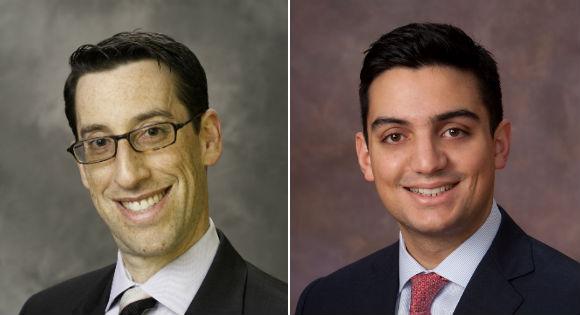
Michael Carrier, Carl Minniti
Rutgers Law professor Michael Carrier and his student Carl Minniti have earned national recognition for their article about the misuse of “citizen petitions” by brand drug companies to delay approval of generic versions of certain drugs.
The article, “Citizen Petitions: Long, Late-Filed, and At-Last Denied,” published in the American University Law Review in 2016, received the top Academic Antitrust article of the year honor in the intellectual property category from Concurrences Review and the George Washington University Law School Competition Law Center.
“Citizen petitions are supposed to allow citizens to raise legitimate safety concerns with the FDA, says Carrier, a distinguished professor at Rutgers Law in Camden. “Carl Minniti and I had the sense that they weren’t being used in this manner.”
In their article, Carrier and Minniti explain, “While citizen petitions in theory could raise concerns that a drug is unsafe, in practice they bear a dangerous potential to extend brand monopolies by delaying approval of generics at a potential cost of millions of dollars per day.”
“We spent months working on the piece and it became a labor of love to decipher the precise moves companies employ when petitioning the FDA,” says Minniti, a JD/MBA candidate from Barnsboro, N.J.
Carrier and Minniti analyzed all citizen petitions filed with the FDA between 2011 and 2015 that targeted pending generics and found that brand firms file 92% of the claims, with the FDA denying nearly all of the claims.
”It is rewarding to be recognized for writing an empirical article that sheds light on price-increasing behavior that has slipped beneath the radar,” says Carrier.